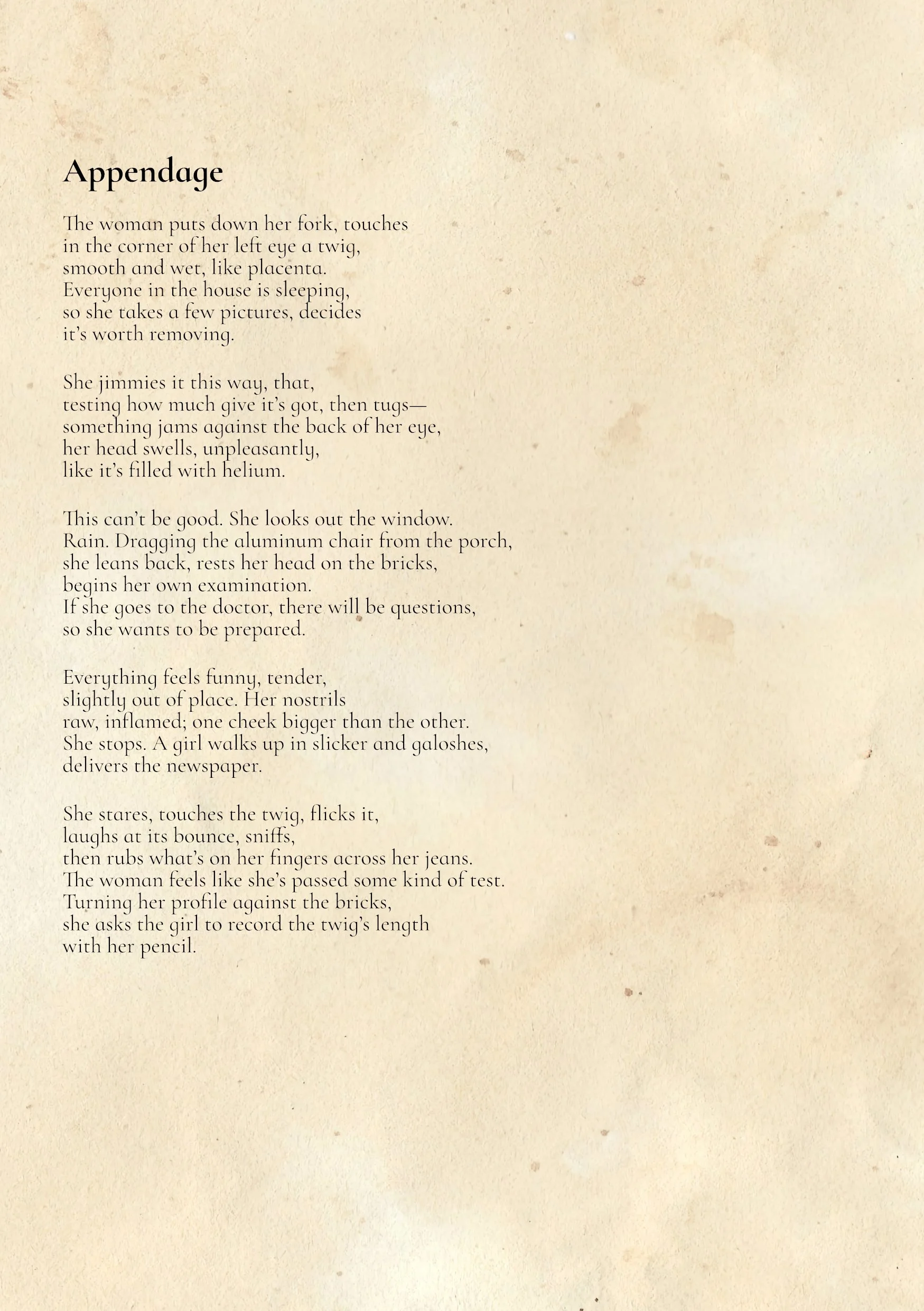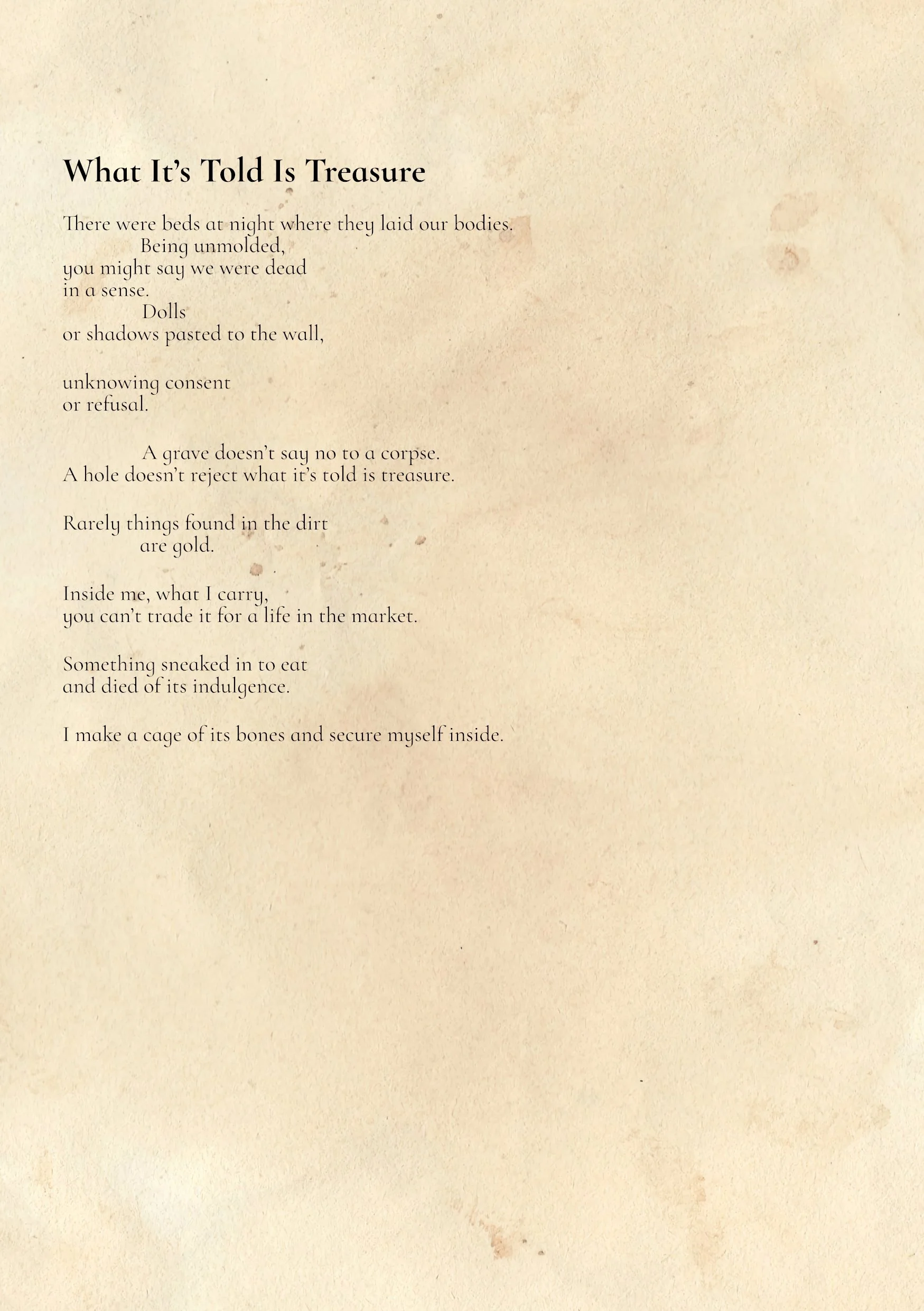jms xuange
jms xuange explores the fluidity of identity, embodiment, and violence through surreal and transgressive poetic forms. They live and write in Asia.
Easy read of the poems in the images above:
Appendage
The woman puts down her fork, touches
in the corner of her left eye a twig,
smooth and wet, like placenta.
Everyone in the house is sleeping,
so she takes a few pictures, decides
it’s worth removing.
She jimmies it this way, that,
testing how much give it’s got, then tugs—
something jams against the back of her eye,
her head swells, unpleasantly,
like it’s filled with helium.
This can’t be good. She looks out the window.
Rain. Dragging the aluminum chair from the porch,
she leans back, rests her head on the bricks,
begins her own examination.
If she goes to the doctor, there will be questions,
so she wants to be prepared.
Everything feels funny, tender,
slightly out of place. Her nostrils
raw, inflamed; one cheek bigger than the other.
She stops. A girl walks up in slicker and galoshes,
delivers the newspaper.
She stares, touches the twig, flicks it,
laughs at its bounce, sniffs,
then rubs what’s on her fingers across her jeans.
The woman feels like she’s passed some kind of test.
Turning her profile against the bricks,
she asks the girl to record the twig’s length
with her pencil.
What It’s Told Is Treasure
There were beds at night where they laid our bodies.
Being unmolded,
you might say we were dead
in a sense.
Dolls
or shadows pasted to the wall,
unknowing consent
or refusal.
A grave doesn’t say no to a corpse.
A hole doesn’t reject what it’s told is treasure.
Rarely things found in the dirt
are gold.
Inside me, what I carry,
you can’t trade it for a life in the market.
Something sneaked in to eat
and died of its indulgence.
I make a cage of its bones and secure myself inside.

